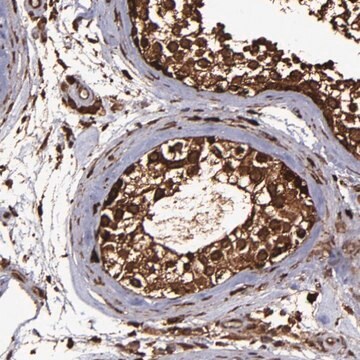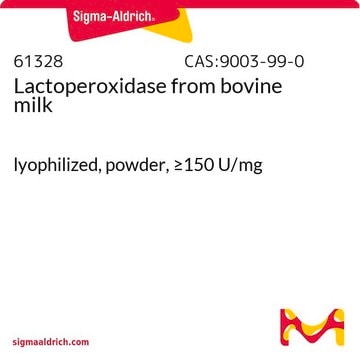M1559
Moxonidine hydrochloride
≥98%
Synonyme(s) :
4-Chloro-6-methoxy-2-methyl-5-(2-imidazolin-2-yl)aminopyrimidine hydrochloride, BDF-5895
About This Item
Produits recommandés
Niveau de qualité
Essai
≥98%
Auteur
Solvay
Chaîne SMILES
Cl.COc1nc(C)nc(Cl)c1NC2=NCCN2
InChI
1S/C9H12ClN5O.ClH/c1-5-13-7(10)6(8(14-5)16-2)15-9-11-3-4-12-9;/h3-4H2,1-2H3,(H2,11,12,15);1H
Clé InChI
ZZPAWQYZQVUVHX-UHFFFAOYSA-N
Informations sur le gène
human ... ADRA2A(150) , ADRA2B(151) , ADRA2C(152) , NISCH(11188)
Application
- as a standard to study its blood-brain barrier (BBB) permeability in porcine brain lipid extract by parallel artificial membrane permeability assay (PAMPA) method
- as a standard to study the chromatographic behavior and lipophilicity by reversed-phase thin-layer chromatography (RP-TLC)
- as an imidazoline I1 receptor agonist to study its effects on excitatory inputs in airway vagal preganglionic neuron (AVPN)
Actions biochimiques/physiologiques
Caractéristiques et avantages
Code de la classe de stockage
11 - Combustible Solids
Classe de danger pour l'eau (WGK)
WGK 3
Point d'éclair (°F)
Not applicable
Point d'éclair (°C)
Not applicable
Équipement de protection individuelle
Eyeshields, Gloves, type N95 (US)
Faites votre choix parmi les versions les plus récentes :
Certificats d'analyse (COA)
Vous ne trouvez pas la bonne version ?
Si vous avez besoin d'une version particulière, vous pouvez rechercher un certificat spécifique par le numéro de lot.
Déjà en possession de ce produit ?
Retrouvez la documentation relative aux produits que vous avez récemment achetés dans la Bibliothèque de documents.
Notre équipe de scientifiques dispose d'une expérience dans tous les secteurs de la recherche, notamment en sciences de la vie, science des matériaux, synthèse chimique, chromatographie, analyse et dans de nombreux autres domaines..
Contacter notre Service technique






